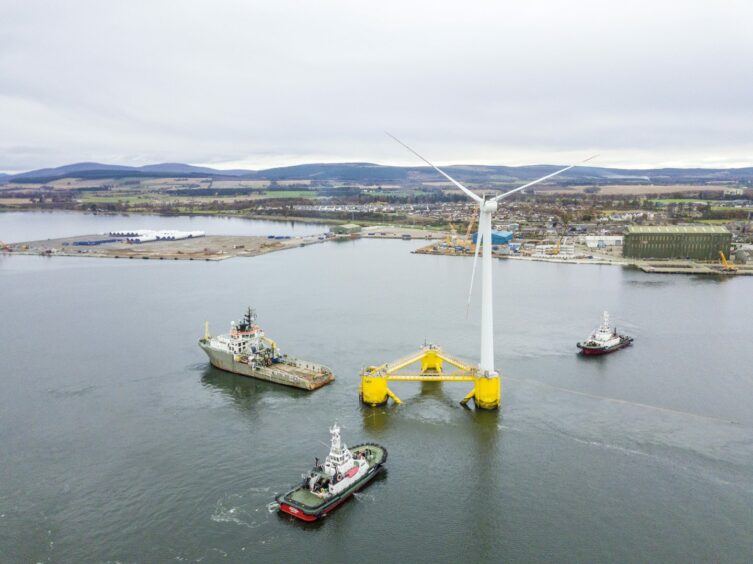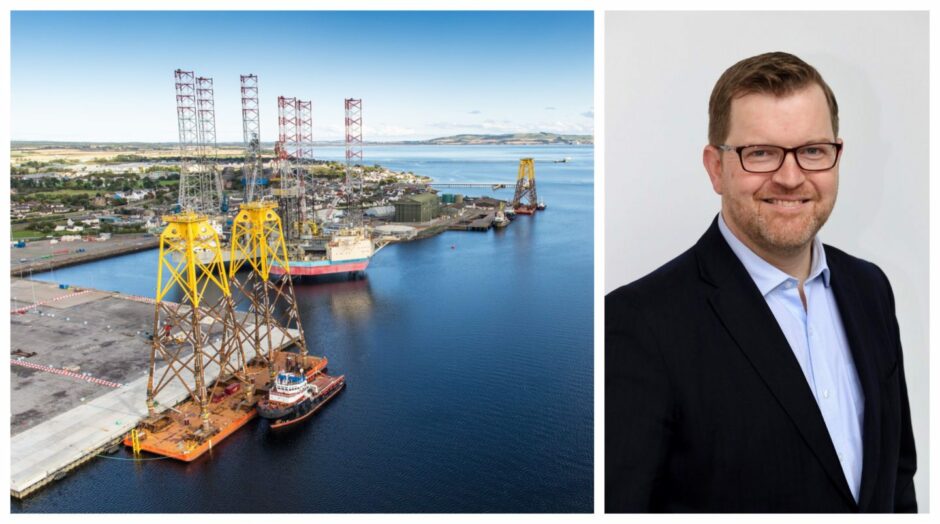 © Supplied by Port of Cromarty Firth
© Supplied by Port of Cromarty Firth In a recent conversation with Energy Voice, the chief executive of Cromarty Firth Green Freeport, Calum MacPherson, confirmed that his project will create 16,500 jobs.
Of the thousands for roles created by the green freeport, 10,250 will be made in the highlands, something that native Inverness-born Calum MacPherson is proud of.
The freeport is forecasting more than 6,000 jobs to be created in addition to this for the wider UK supply chain.
Mr MacPherson said: “I spent the last few months doing a really detailed analysis and I’m pleased to say that in the next 10, 20, 25 years, we’re very confident at least 10,250 jobs will be created in the Highlands.”
“Then for the UK, 16,000 jobs, those are based on specific visible opportunities. So in actual fact, I hope it will be more than that, but at the moment, what we’re pinning down is 10,250 highland jobs and for the UK, 16,500 jobs.”
The roles created in the highlands expand further than “just the immediate Inverness and Cromarty Firth”, says Mr MacPherson.
Some of the work that will be taken on by the supply chain will spread into the wider area of Inverness-shire and the highlands.
Green Freeport Status in the Highlands
Mr MacPherson, an Aberdeen University law graduate, took on the chief executive role at Inverness and Cromarty Firth Green Freeport in May following the region securing the status in January.
Forth Ports was also awarded a green freeport status by the UK government at the beginning of the year.
At the time of the announcement, the government said that the two sites were set to create over 75,000 new, high-skilled jobs.
The winners were supported by up to £52 million in start-up funding and can now benefit from tax reliefs and other incentives.
When applying for green freeport status, applicants had to show they would contribute towards environmental targets by 2045 and create new, “green” jobs.
The Cromarty Firth bid argued that green freeport status would push forward renewables projects in the region and help whisky firms to become more environmentally friendly.
Ensuring fair working conditions
This influx of jobs and businesses to the region has prompted questions from locals about how the green freeport status will impact them.
Mr MacPherson explained: “A core principle which we’ve built into our whole bid is that the businesses and the landowners that will be based in the tax zones will have to sign a tax site delivery agreement, of which there is a charter around fair work, about biodiversity and a push to net zero.
“We’re placing some pretty high standards in terms of how business is conducted in there and that’s really important to the local community because obviously this is something that’s not just here for the next few years, but here for generations to come.”
The highland freeport boss said that this charter works to ensure the minimal use of zero-hours contracts and looks to secure fair pay for workers.
The space is also looking to foster work flexibility to encourage an even mix of male and female employees in order to promote gender diversity.
Mr MacPherson told Energy Voice: “We’re making sure that it’s done right and it’ll set us up for generations to come. It’s about it’s not about jobs, it’s about careers.”
He added: “We need to make sure this is for the long term because we’ve seen historically when the oil and gas boom came to the Highlands at Ardersier and at Nigg, we had eight to nine thousand people working there at that time but it kind of came and it went.”
Impact on local authorities
As the freeport looks to attract more people to the region with appealing job prospects, local government could feel pleasure from a growing demand for resources and infrastructure.
However, the Highland Council is part of the freeport consortium and this is a problem it is “very awake to.”
The freeport boss said: “We’ve built into the model fact that the non-domestic rate holiday period that there is as one the attractions of a green freeport, that money can be rerouted back into the freeport and local authority to try and address just some of those issues.
“We recognise without that they’re going to really struggle because of course money is tight for local authorities.”
He added: “We’ve tried to cover these issues as much as we can but it’s going to need everybody to get the shoulder behind it and push really hard, but the rewards are going to be felt for generations to come if we get it right.”

